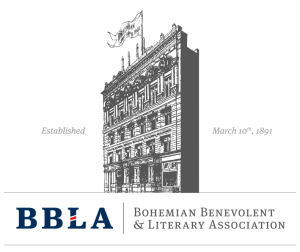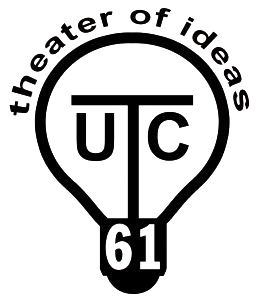Spring Weekend: Interview with Hungarian playwright Andrea Pass and Attila Szabó
The Rehearsal for Truth theater festival introduces the SPRING WEEKEND – a series of contemporary European stage readings. Andrea Pass is the chosen Hungarian playwright whose work SUNFLOWER will be performed on Saturday May 11 at 4pm. She will be present for the stage reading and talkback after the event. Andrea’s visit is supported, in part, by CITD – Center of International Theatre Development.
 In Sunflower, a young couple with a dysfunctional marriage and illness taking over their lives, faces losing their home. Familiar situations, and scenes from contemporary life, become a series of revealing snapshots through the eyes of adults as well as children.
In Sunflower, a young couple with a dysfunctional marriage and illness taking over their lives, faces losing their home. Familiar situations, and scenes from contemporary life, become a series of revealing snapshots through the eyes of adults as well as children.
The play is set in a small town and involves ordinary characters: the young idealist teacher, the friendly caretaker, three young teens, the handsome doctor, the hopeful shop assistant, the troubled woman in the psychiatric ward. They all bear witness to the story of this three-person family. The father and the 10-year-old, Janka, are trying to cope with the increasingly erratic behavior of the mother. Sunflower is a vibrant tableau of everyday life, vulnerable and burdened with financial problems, broken families, and taboos and shame surrounding mental illness.
Andrea Pass and Attila Szabó (Hungarian project advisor) generously answered a few questions about the upcoming stage reading of her work…
What/who was the inspiration for the creation of this play?
Andrea: We have been struggling with this problem in my family, but the play is not about my mother. Nonetheless, since the play has a strong personal inspiration, it was really difficult to write, despite the fact that reality is only the kernel of the story, everything else being the fruit of my imagination.
Why do you think the work aligns strongly with the theme of “Rehearsal for Truth?”
Attila Szabó (Hungarian project advisor): One of the main objectives of the Rehearsal for Truth project is to showcase the distinctive contemporary cultural perspective of the Central European region on the New York stages. The unique dramatic and theatrical voice of Andrea Pass deals with very relevant and mostly unspoken problems in our region, but also represents a trending theatre production model: that of the playwright-director, which at the moment seems to be the most innovative development in contemporary dramaturgy, bringing to life a series of socially interested and aesthetically vivid works.
What is the core political issue you are grappling with in the play?
Andrea Pass: The story can be understood as a metaphor about a family where the unspoken problems cause a poisonous atmosphere. Accusations, setbacks are swept under the rug and, suddenly, they explode in a destructive blast. At that point, it looks impossible to redress the root of the conflicts, the poison stays in the air, the victims of which are the children, the new generation.
Who are your mentors? Where do you draw inspiration from to create your work?
Andrea Pass: I have worked for years with Béla Pintér and, later, Viktor Bodó, from whom I learned a lot. Experiencing first hand how a Pintér performance takes shape through the rehearsals was a defining experience for me, allegedly his influence can be seen in my works.
What is your process when you write your play? Do you write it over a period of time, or in a condensed time frame? How many hours a day do you dedicate to creating your work?
Andrea Pass: For me the morning hours are the most productive. I can work most intensively on playwriting in the summer, 4 hours a day, on average.
What is your favorite moment/character in the show?
Andrea Pass: I really enjoy the scenes where the kids are alone among themselves, without any adults present. Dzseni and Erik, the Roma siblings, and the relationship between the two kids is especially dear to me.
How do you think Vaclav Havel still influences theater creation in Europe?
Attila Szabó: Although there have been altogether only about a dozen productions of his plays in Hungary, Havel’s satirical edge and deep theatrical interest in the matters of the public sphere and the values of democracy are attitudes many contemporary Hungarian playwrights align with.
What Theater Companies/Performers/Playwrights do you like in Europe or abroad?
Andrea Pass: This would be a long list but the people who still have the greatest effect on my work are Béla Pintér and Company, and maybe I could also mention my newest experience: Peeping Tom.
How would you describe the theater industry in your country?
Attila Szabó: The theatre scene in Hungary is traditionally centered on repertory theatres with a permanent venue, which receive the most theatre subsidies from the state and the cities (to a smaller extent). Due to a boom in independent theatres, which started in 1989, the theatre offering in Budapest at least, has become much more diversified both thematically and aesthetically. Different social theatre projects and new plays addressing certain communities or age groups are becoming more and more prominent after the turn of the millennium. Theatre ensembles visiting schools with shows specifically designed for them, or inviting school children and teenagers (or their parents) into the theatre halls with plays highlighting hot issues very relevant for these communities, is one of the most exciting and productive trends in the Hungarian contemporary theatre at the moment.
Why do you think an audience should see this work?
Andrea Pass: I would like to quote from a review of the play: ‘A play about a depressed mother and her teenage daughter, about the lost or never been childhood, or, more precisely, about hurting someone unwillingly, which stems in the disrupted balance in the family. It is hard topic to talk about, since the victimization reflex is a great and cajoling reflex in all of us, the instinct to name instantly the guilty one, the victim, the one responsible, especially if we are talking about children, who is always more naked and defenseless in front of the parent. The theatrical sensitivity operated by Pass in the play builds on these passions by deconstructing step by step our desire for blood, secrets, guilt and perpetrators, all the usual devices encountered every day in the media and used with ruthless professionalism by the Hollywood dramaturgy.’ (Anikó Varga)
About the Playwright:
Andrea Pass is a playwright and director. She graduated as a theater historian from the University of Veszprém, Hungary and spent time in Nancy and London on scholarships during her studies. She worked as an assistant to Béla Pintér and Viktor Bodó while she studied script-writing and earned a degree in theater pedagogy. She was awarded the prestigious István Örkény Playwrights Grant for young playwrights on two occasions. Three of her works have been published in print, one of them recently in the Polish Dialog theatrical magazine. Her work deals with social issues while also exploring the human condition, strongly believing in the transformative power of theater.
FREE TICKETS AVAILABLE: https://www.eventbrite.com/e/spring-weekend-sunflower-hungary-tickets-59965963812








